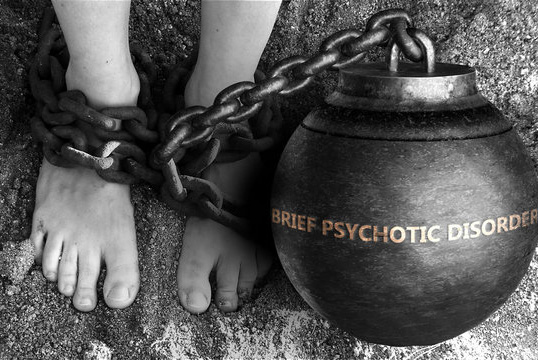Know About Paranoid Personality Disorder
Paranoid Personality Disorder (PPD) is a eccentric personality disorder characterized by unusual or unconventional ways of thinking. People suffering from PPD also experience paranoia, which is an unyielding mistrust and suspicion of others, even when there is no cause to be doubtful.
Overview OF PPD:
This condition appears to be more frequent in males than in women and generally manifests itself by early adulthood. It is a chronic condition, which means it lasts for the rest of a person’s life. Although some persons with PPD can function very well and even marry and work, others are utterly crippled by the condition. Because persons with PPD generally reject therapy, the prognosis is usually poor. Individuals who seek therapy, on the other hand, may have less difficulty holding a job and sustaining good relationships. However, because there is no cure for PPD, you must continue medication for the rest of your life. PPD symptoms will persist, but they might be treated with care and support.
Following Topics of This Blog Have Been Discussed Below:

Symptoms of Paranoid Personality Disorder:
People suffering from PPD are continuously on guard, feeling that people are continually attempting to denigrate, injure, or threaten them. Their capacity to build deep connections may be hampered by these largely baseless views, as well as their tendencies of blaming and distrusting. Individuals suffering from this illness:
- Have doubts about other people’s devotion, loyalty, or trustworthiness, feeling that others are exploiting or misleading them.
- Are hesitant to rely on people or divulge personal information for fear of it being used against them
- Are abrasive and hold grudges
- Are too sensitive and have a difficult time accepting criticism
- Recognize hidden messages in others’ benign statements or casual looks.
- Perceive unnoticed attacks on their character; they often respond with rage and are ready to counterattack.
- Have recurring, unfounded concerns that their husbands or lovers are disloyal
- In general, they are cold and heartless in their relationships with others, and they may become domineering and envious.
- Is unable to see their involvement in difficulties or confrontations, and believes they are always correct.
- Have difficulty unwinding
- Are aggressive, obstinate, and argumentative
Committed to helping
people who want to help themselves
Causes of Paranoid PD:
While the specific origins of PPD are unknown, genetics and psychosocial factors are thought to have a role. A major genetic component is also expected, as a family history of schizophrenia is considered a risk factor for PPD. Childhood events and trauma may also play a role in the condition’s development.
Diagnosis of Paranoid PD:
A mental health professional will look for the presence of at least four of the above mentioned symptoms to confirm a diagnosis of PPD. They will also rule out paranoia caused by a psychotic episode associated with another diagnosis, such as bipolar disorder, schizophrenia, or depression with psychosis.
Common Risk Factors PPD:
- Living in a low-income household
- Being divorced or separated
- Being widowed
- Never getting married or living with a partner
Complications:
PPD related thoughts and behaviors might impair a person’s capacity to sustain relationships, as well as their ability to function socially and at work. Persons with PPD frequently become embroiled in legal fights, suing people or businesses they fear are out to harm them.

Prevention of Paranoid Personality Disorder:
Although prevention of Paranoid Personality Disorder might not be possible, treatment can sometimes help a person who is prone to this disorder to learn more useful ways of dealing with circumstances, however some life style modifications such as:
- Maintaining the relationships with others
- Taking time to unwind and relax
- Exercising
- Eating well
- Getting enough sleep
Committed to helping
people who want to help themselves
Treatment:
Medications
Medication is not usually used to treat PPD. Medication, such as anti-anxiety, antidepressant, or antipsychotic medicines may be recommended if the person’s symptoms are severe, or if they also have a related psychiatric issue, such as depression or anxiety.
Treatment for PPD often focuses on assisting patients in developing coping skills. Empathy, trust, communication, self-esteem, social interactions, communication skills, and general coping qualities are frequently emphasized in therapy.
- Cognitive-behavioral treatment (CBT) can assist someone suffering from paranoid personality disorder in recognizing their damaging ideas and cognitive patterns.
- CBT can help lessen paranoia and enhance how well your loved one interacts with others by modifying how these beliefs impact their behavior.
- CBT may also teach kids healthier strategies to deal with their emotions instead than striking out at others.
